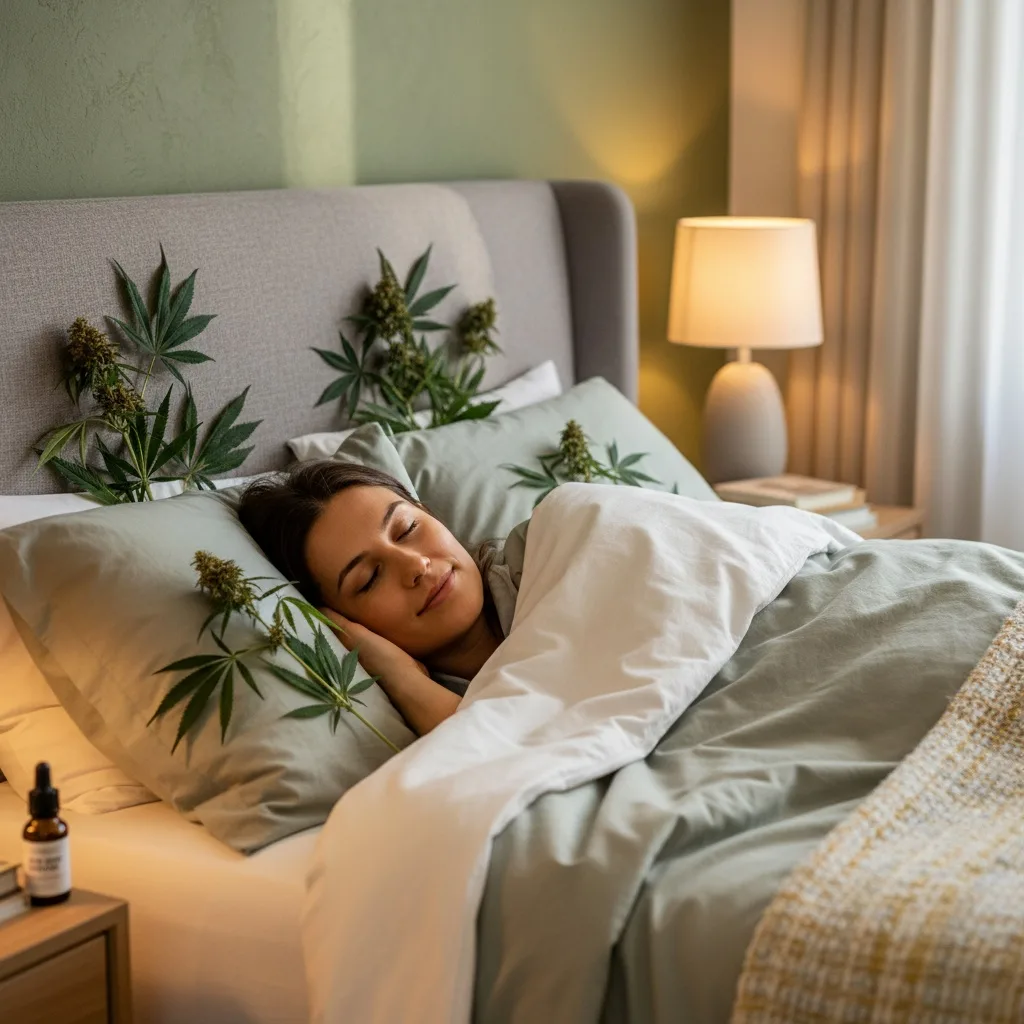A new 18-month study shows that cannabis-based treatments help chronic insomniacs sleep better, feel happier, and manage pain, with fewer side effects than many expect.
Many people spend night after night struggling to fall asleep, even while prescription medications sit unused on their nightstands. For those who have tried everything, a new study suggests that cannabis could finally provide the rest they have been searching for. The findings are making waves among sleep-deprived individuals hoping for a real solution.
Why traditional sleeping pills often fall short
Insomnia is a widespread problem, with about one-third of adults struggling to get enough rest. Ten percent of adults are diagnosed with insomnia disorder. Unfortunately, many approved sleep medications come with unpleasant side effects or the risk of dependence. This is where cannabis-based medicines are starting to get attention as a possible alternative.
In a recent study, researchers followed 124 patients with insomnia who used medical cannabis for up to 18 months. The results were striking:
- Improved sleep quality that lasted throughout the study
- Reductions in anxiety and depression symptoms
- Better pain management
- Only 9 percent reported mild side effects such as dry mouth or fatigue
These results suggest that cannabis could be a helpful option for those battling poor sleep and not finding relief with traditional medications.
The long-term study that could change sleep medicine
The study, published in PLOS Mental Health in August 2025, stands out for its length and depth. Instead of tracking patients for just a few weeks, researchers observed their experiences for a year and a half. Participants kept detailed notes about their sleep, mood, and overall well-being, making this one of the most thorough studies of its kind.
What sets this research apart?
Most studies on cannabis and sleep are short-term, but this one offers a rare look at how people respond over many months. The improvements in sleep, mood, and pain did not fade with time. Importantly, there were no serious side effects or health emergencies reported during the study. This suggests that cannabis-based treatments might be safe for long-term use, although more research is still needed.
Dr. Simon Erridge, one of the study’s authors, explained, “Our findings suggest cannabis-based treatments could help where conventional options fail, but we need larger trials to confirm these results.” His comments highlight the hope many feel, but also the need for more evidence.
Real experiences from patients who tried cannabis for sleep
The numbers tell part of the story, but the patients’ experiences bring it to life. Many reported falling asleep faster, waking up less often during the night, and feeling more refreshed in the morning. These improvements made a real difference in their daily lives.
- Faster time to fall asleep
- Fewer nighttime awakenings
- Improved feelings of restfulness in the morning
Some participants did notice that they needed to adjust their dosage over time, which may be a sign of developing tolerance. Dr. Erridge emphasized that cannabis is not a cure-all and that careful monitoring and personalized treatment are important for anyone considering this option.
Is cannabis the future of sleep medicine?
While these results are promising, it is important to remember that researchers are not recommending people stop using their current medications just yet. More studies, especially randomized controlled trials, are needed to fully understand the benefits and risks of cannabis for sleep.
What is clear so far is:
- Cannabis-based treatments improved sleep when other medications did not work
- The benefits lasted longer than what is usually seen in short-term studies
- The side effects were generally mild compared to prescription sleep aids
For many sleep-deprived people who have tried countless remedies without success, this research offers new hope. As more studies are conducted, we may see cannabis-based medicines becoming a regular part of insomnia treatment.
Looking ahead for those searching for better sleep
For anyone who has spent endless nights unable to sleep, these findings are encouraging. Cannabis-based treatments may not only help with falling asleep but could also improve mood and help manage pain. However, anyone interested in trying this approach should speak with a healthcare professional to make sure it is safe and appropriate for their situation.
As the science continues to develop, many are watching to see if cannabis will become a standard tool in the fight against insomnia. For now, it offers a promising new path for those who need better sleep and have not found it elsewhere.










Leave a Reply
View Comments